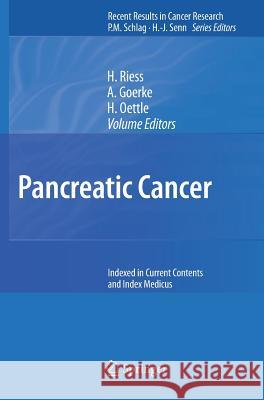Pancreatic Cancer » książka
Pancreatic Cancer
ISBN-13: 9783540712664 / Angielski / Twarda / 2007 / 200 str.
Although pancreatic cancer is one of the most serious forms of cancers, the outlook for patients could be improved. The lack of clinical symptoms of early, surgically removable disease most often limits curative treatment options. The aggressive tumor cell biology, leading to a locally advanced nature of the disease and to early metastases, allows curative resection in only 20% of patients at the time of diagnosis. Patients are therefore often faced with a dreadful prognosis from a state of almost full physical health. Furthermore, because there is a high recurrence rate after curative resection, treatment of this tumor entity becomes a great challenge. This book gives insight into the current understanding of the management of pancreatic cancer and considers recent findings in cancer research. It provides answers to questions of how to know when cancer is respectable, how to proceed when the diagnosis comes too late for a curative approach, and how to assess different study results. Moreover, it highlights new upcoming therapeutic options and experimental approaches, which might further improve the future prospects for patients with pancreatic adenocarcinoma.











